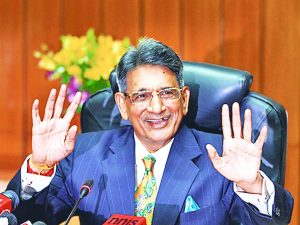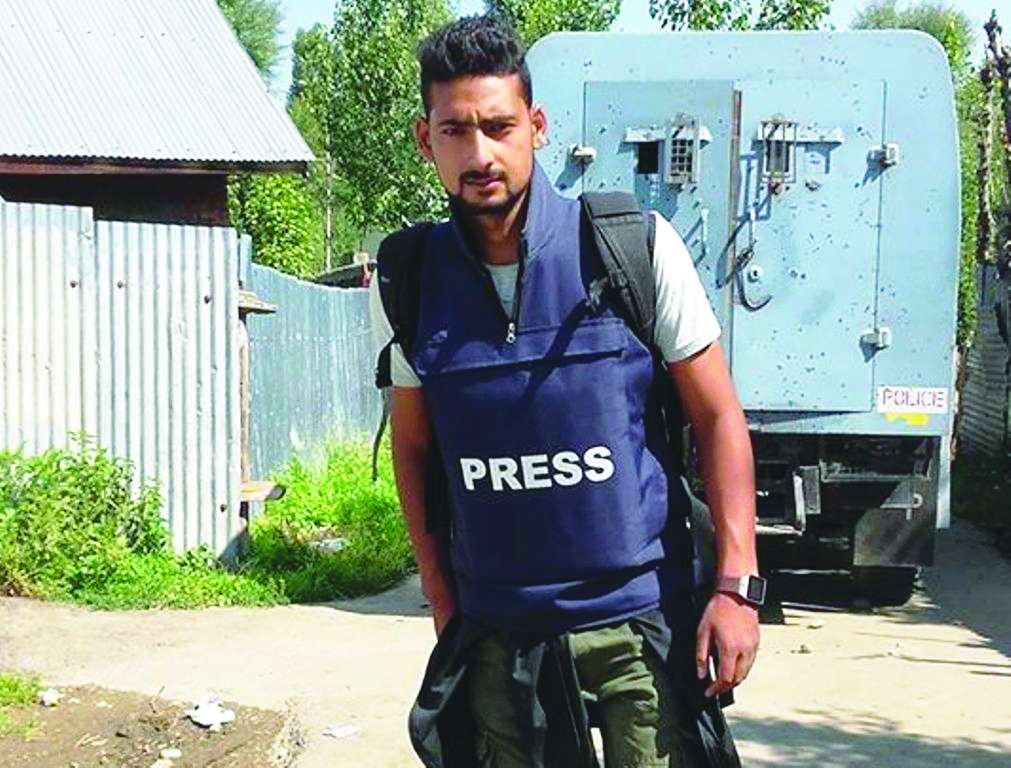The Wrong Mahajan
 When news broke that a Prasar Bharati selection committee had appointed Rahul Mahajan as editor-in-chief of Rajya Sabha TV, it created a piquant, even hilarious, situation. A number of BJP supporters and even legislators went to town on social media condemning the choice and asking for a review.
When news broke that a Prasar Bharati selection committee had appointed Rahul Mahajan as editor-in-chief of Rajya Sabha TV, it created a piquant, even hilarious, situation. A number of BJP supporters and even legislators went to town on social media condemning the choice and asking for a review.
The reason for their discomfort was that they had mixed up the name with that of the son of the late BJP leader, Pramod Mahajan. That Rahul Mahajan had a playboy lifestyle and was arrested for possession of cocaine. He also took part in an explosive episode of Big Boss.
The Rahul Mahajan appointed as new editor is a seasoned TV journalist who was consulting editor at Prasar Bharati. He is also a favourite of Vice-President Venkaiah Naidu (the vice-president is chairman of Rajya Sabha TV). Mahajan replaces Gurdeep Singh Sappal, who was appointed by previous Vice-President Hamid Ansari. Sappal had quit when Naidu took over.
Wag the Dog
 The media’s overt bias for the BJP government has come in for a reality check by one of India’s outstanding judicial figures—former chief justice of India RM Lodha, who orchestrated a clean-up of BCCI. Speaking at a media event, he said: “Any perception that watchdog journalism is being replaced by guard-dog journalism is not good for democracy at all. Media should be critical all the time and should have the ability to preserve plurality of views.”
The media’s overt bias for the BJP government has come in for a reality check by one of India’s outstanding judicial figures—former chief justice of India RM Lodha, who orchestrated a clean-up of BCCI. Speaking at a media event, he said: “Any perception that watchdog journalism is being replaced by guard-dog journalism is not good for democracy at all. Media should be critical all the time and should have the ability to preserve plurality of views.”
Justice Lodha went on to caution that recent instances of hostility, threat and harassment on food choices, inter-religion marriages, creative art in the form of films and songs, and transportation of cows, had a tendency to “crush the spirit of our constitutional freedoms”. That’s why it’s important for the media and society not to succumb to “pressures, harassment and intimidation”. In a democracy, the former Chief Justice said, “when the press asks tough questions of those in authority, considers issues of public importance in different light and ensures that our country’s core values are upheld, everyone benefits.”
Reporter’s Role
 A Kashmiri journalist arrested by the National Investigative Agency (NIA) has exposed the ham-handed manner under which the agency operates. The agency claimed in court that the journalist, Kamran Yusuf, was not a real journalist with some bizarre reasoning. “A real journalist should have been covering the government’s development projects in the area.” That, according to the agency, is a journalist’s “moral duty”.
A Kashmiri journalist arrested by the National Investigative Agency (NIA) has exposed the ham-handed manner under which the agency operates. The agency claimed in court that the journalist, Kamran Yusuf, was not a real journalist with some bizarre reasoning. “A real journalist should have been covering the government’s development projects in the area.” That, according to the agency, is a journalist’s “moral duty”.
The NIA’s case is not only full of bad grammar but questionable logic. “Had he been a real journalist/ stringer by profession,” the NIA says, “he may had performed one of the moral duty of a journalist”, adding that a ‘real’ journalist would have covered a blood donation camp, a free medical camp, skill development programmes for unemployed youth, various tournaments, an iftar party during Ramzan and “taking the local student for India Tour – free of cost”…Rules of journalism rewritten.
The Business of Media
There are worrying signs of the conflict of interest faced by large media houses. The first expose of the scam involving Mehul Choksi came from whistleblower Hari Prasad, who wrote to the PMO questioning Choksi’s access to unlimited loans. His letter said he had approached The Economic Times with the information but it was rejected. Prasad, a Bangalore based businessman, disclosed The Times Group’s financial interest in Choksi’s company. Bennett Coleman and Company Ltd (BCCL) had invested in Choksi-promoted Gitanjali Group. BCCL owns The Times of India and The Economic Times. The Group was allotted five convertible warrants of Rs 32.5 crore in Gitanjali Gems Ltd, Nakshatra Brands Ltd and Gili India Ltd, according to the board resolutions of these firms. HT Media Ltd—which owns Hindustan Times, Hindustan and Mint—was also in talks with Gitanjali Group, according to its chief financial officer, but the investment was not completed.


